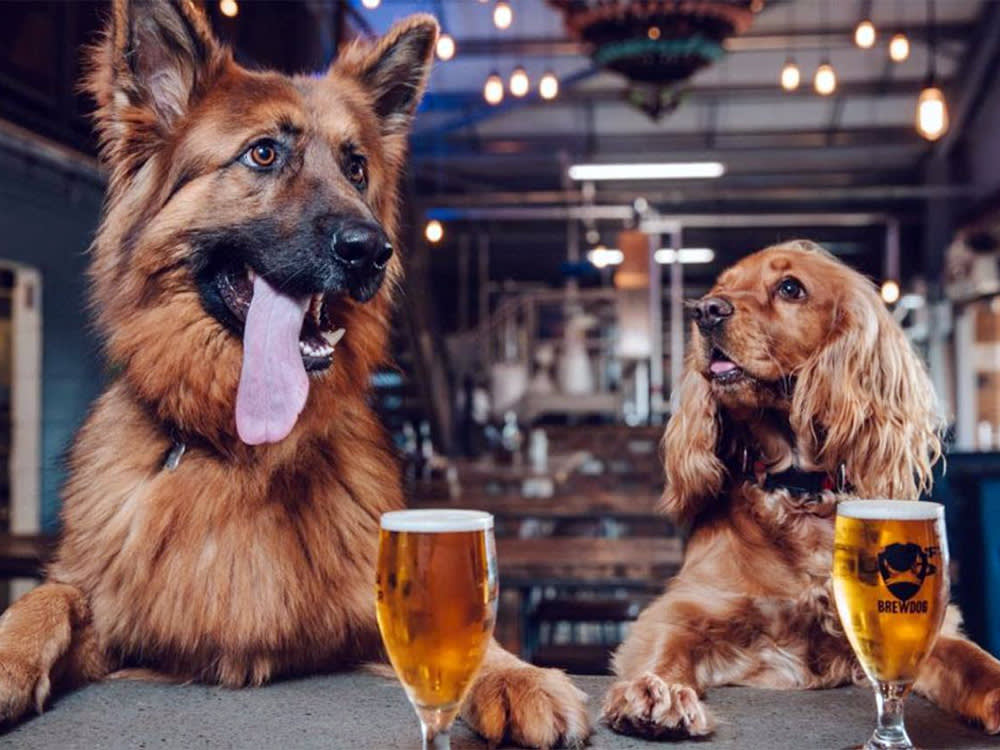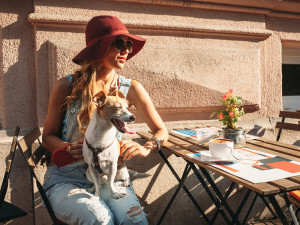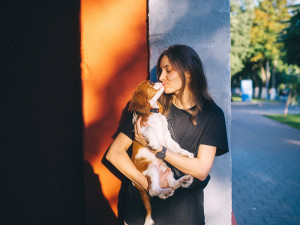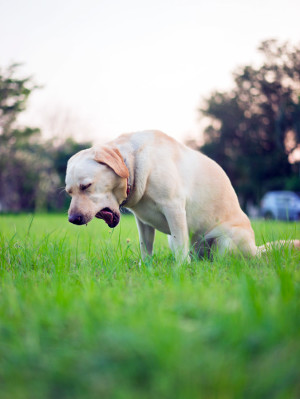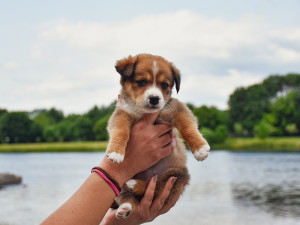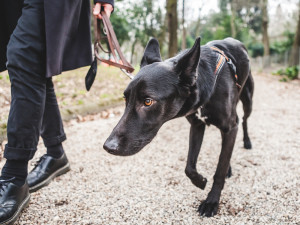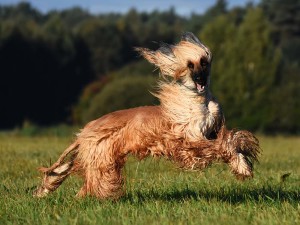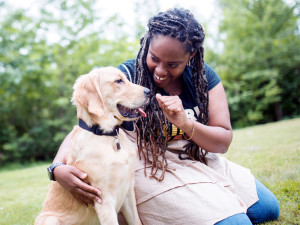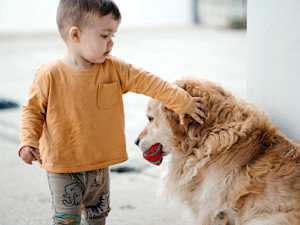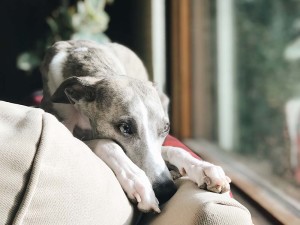10 Breeds of Dog Most Likely To Accompany You To The Pub
Who wouldn’t want to bring their best friend along for a pint?
If there’s one thing most Brits can agree on, it’s that there is always a reason to go to the pub. Tuesday night catch-up with your mate? Pub. Long weekend? Pub (times three). Rain? Pub. A tiny glimpse of sun? Pub garden. In fact, 38 percent of Britsopens in new tab say they go to the pub at least once a fortnight. And for many of us, having a dog you can take with you to the pub is a great way to ensure they can be included in your favourite activity.
How to prepare your pup for the pub
Like any new situation you are going to introduce your dog to, you should always put their well-being first, and when it comes to a potentially hectic setting like the pub, there are a few ways to prepare them.
Socialisation
Whether you have a puppy or a new adult dog, socialisation is paramount, which is about introducing them to new people, stimuli, animals and environments. Over 80 percent of Britsopens in new tab live in urban areas, surrounded by many other people and dogs, which means the best way to socialise your dog is by exposing them to an array of experiences. Some initial general steps for socialising a new dog include:
Sitting with your dog outside your house and watching as friends or neighbours do their daily activities.
Introducing your dog to all different kinds of people: babies, children, elderly people, those of all genders, races, sizes and shapes, dressed in all sorts of clothing and carrying all kinds of things – skateboards, bikes, umbrellas, walking sticks, plastic bags, wheely suitcases etc.
Taking your dog for trips in the car or walks around different areas to get them used to all types of excursions.
Letting your dog walk over, under and around various obstacles with varied textures.
Taking your dog to socialisation or puppy classes so they have the chance to meet other dogs of all sizes and learn how to interact safely and calmly with them.
When it comes to getting them used to the pub itself, pick one pub to start with and walk your dog past it a few times so they become familiar with the route, and give them treats when you get there. Go slow and pop in for 10 minutes at a time at first, gradually increasing the duration every visit.
If a dog has negative experiences with something early on, they may learn to be nervous or afraid around them. For example, bringing a puppy to a large crowded place the day after being adopted is potentially damaging. So while you might be excited to show off your new dog at the pub, you could actually cause them to associate the pub with fear if you do it too soon. It’s much better for your dog to meet people one or two at a time at first, and have those people provide treats, toys and gentle touching in a calm setting. Exposure to people and other dogs that result in positive experiences for the dog provides proper socialisation. Being frightened and overwhelmed does not.
Choosing the right pub
The UK is pretty welcomingopens in new tab when it comes to letting dogs into pubs, with London leading the way with 514 dog-friendly pubs, followed by Edinburgh with 106, and many pubs will advertise this fact on signs outside or with stickers in the window – but if in doubt, give them a call first to check if your pup is allowed in. Some pubs may allow dogs in the outside seating area, but not inside, so it’s worth checking the rules before you set off to prepare (ie, if they’re only allowed outside and it’s a mild day, you may want to bring a blanket or a coat for your dog). Or why not check out the UK’s best dog-friendly pubopens in new tab, The Cornish Arms in Padstow, Cornwall.
Packing the essentials
When taking your dog with you to the pub, it’s not enough just to pack your phone, keys and wallet, you’ll need to think about what your pup needs, too.
Collapsible water and food bowls: although many pubs may have communal water bowls for your pup to drink out of, it’s healthier and nicer for your dog to bring your own from home and get them to fill it up behind the bar. If you’re going to be at the pub during your dog’s usual mealtimes, bring some food with you, too, so as not to disrupt their schedule.
Treats: dogs will do (nearly) anything for treats, and it’s a great way to get them trust new people. So pack a bag of high-value treats and dish them out for good behaviour and offer them to strangers who are trying to befriend your dog – they’ll be best mates with everyone in no time.
Toys: distraction, distraction, distraction. While lots of dogs will be happy to sleep at the pub or quietly observe the comings and goings, other more excitable or young dogs will require stimulation to keep them occupied. Tug toys, puzzle feeders, rope toys and Kongs are all good options for your pub arsenal.
Weather-appropriate gear: is it going to be cold, hot, raining? Probably all three in quick succession in the UK. Either way, make sure your pup is equipped with everything they need to face the elements.
Consider the hazards
Trips to the pub come with lots of potential hazards for dogs, from bad weather to rowdy football fans. So make sure you pick a time that works for them and not just for you – it is very important to ensure you’re not going to be exposing your pup to an environment that’s detrimental to them.
Weather
Just like people, dogs are at risk for heatstroke and dehydration when temperatures rise. If you’re uncomfortable in the sun, your dog probably is, too. Make sure they always have access to fresh water and shade when outside, and you can also give them ice-filled Kongs or a frozen water bottle to keep them entertained and cool.
Hot surfaces can cause painful blisters on your dog’s paws – if you can’t hold your hand to the ground comfortably for more than a few seconds, it’s too hot for your dog to walk or lie on. So make sure you take this into account on those rare sunny days.
Likewise, when it comes to cold and rain, make sure you’re not forcing your pup to hang out in horrible weather for the sake of your desire to go to the pub – they’re much better off curled up in front of the fire, so choose a pub that welcomes dogs indoors if it’s going to be wet or cold.
Hectic atmosphere
Even the most well-socialised, patient and calm dog can become overwhelmed in an environment that’s too loud or busy, so take this into consideration when choosing both the pub and the day and time you two head out. Friday and Saturday nights, football or rugby matches, major drinking holidays (St Patrick’s Day, Christmas Eve, New Year’s Eve etc) are best avoided to ensure you don’t create a negative association with the pub for your pup.
But even on a regular day, pubs do pose a number of hazards, including people tripping over your dog, spilling drinks and dropping potentially toxic items of food on the floor that your dog might eat, or not taking no for an answer if your pup isn’t in the mood to interact. So depending on your dog’s temperament and size, pick the optimal spot away from as many of these hazards as possible – ie, not in the path of waiters if the pub serves food, away from the bar, and away from busy tables of rowdy patrons.
Other things to take into consideration
No matter how much fun you’re having at the pub, remember to keep your pup’s needs at the forefront of your mind at all times.
Take them to the toilet regularly.
Offer them food and water.
Make sure they’re not eating anything hazardous from the floor.
Make sure they’re genuinely comfortable, and be prepared to leave and cut your time short if they’re showing signs of distress or boredom.
Take them for a walk beforehand to get their pent-up energy out.
Give them toys, puzzles and treats to keep them occupied.
Don’t stay there for too long – a few hours is probably enough for most well-behaved adult dogs, but this will vary based on the dog’s age, anxiety level and temperament.
While you should obviously never choose the pup you’re going to adopt based on whether they’re going to be happy at the pub or not, here are some breeds that will likely do particularly well in those situations (in no particular order). However, it’s important to remember that breed characteristics are generalised and each dog is an individual, so no matter what activity you’re doing with your dog, go at their pace and take your cues from their behaviour.
1. Poodle
Good with kids and strangers, Poodles are among the world’s most intelligent dog breeds, which makes them highly trainable and very adaptable – all very useful skills for any wannabe pub dog. They will gladly take cues from you in return for some treats, but they can be a little prone to nervousness in new places or around other dogs, so take it slow and build up their tolerance over a few visits to the same spot – a perfect reason to keep popping to your local.
2. Labrador Retriever
Labrador Retrievers are friendly and outgoing dogs who love strangers nearly as much as their pet parents (don’t worry, you’re still their number one), which makes them great pub companions – especially if you’re looking to meet new people or, you know, attract a mate. They’re also very patient, attentive and adaptable (although perhaps not patient enough to withstand hearing your drunk mate tell the same story for the fifteenth time), so they’ll be happy to flop down by your side and follow your lead. Just remember to take them on a long walk first so they’re tired out.
3. Bassett Hound
Look up ’chill’ in the dictionary and you’ll find a picture of a Bassett Hound. Known for being gentle, affectionate and easy-going dogs who tend to get along with everyone and adapt to any situation if they’re well-socialised, this breed is likely to be content sniffing the beer-soaked carpet for a few minutes before promptly plopping down for a snooze. You might want to avoid bringing them to a pub quiz, though, as their snoring could drown out the sound of the questions.
4. Cavalier King Charles Spaniel
Likely to take a pub visit in their stride, Cavalier King Charles Spaniels are kind and loyal pups who are also small enough to snuggle on your lap, curl up in a dog bag, or sit next to you to watch the world go by. They can be prone to separation anxiety, though, so get someone else to go to the bar when it’s your round so they don’t too worried about your momentary absence.
5. Greyhound
You might think Greyhounds need to be constantly on the move, letting off as much steam as possible, but despite their athletic appearance and ability, they don’t require an overly substantial amount of exercise. Which is not to say you should’t take them on a walk before you land at the pub, but once their energy has been expelled, they’ll be very happy to lie on a blanket under the table all afternoon. They’re also affectionate and even-tempered, and known for being docile around children, so can handle nearly anything they might encounter at the pub (within reason). A well-trained Greyhound will easily adapt to a pub environment, but if you’ve got a new rescue or puppy, you may want to consider holding on to their lead to the table leg to ensure they don’t go chasing after smaller dogs, birds or squirrels as their hunting instinct is high.
6. Dachshund
These little guys are known for being affectionate lap dogs who love their owners more than life itself, and are always up for an adventure – making them great for taking to the pub. You can carry them around in a dog bag, too, which not only looks stylish but is also very convenient. These cuties will get a lot of attention, so prepare to get into conversations with literally everyone in the pub. However these tiny pups have a lot of energy and a strong will to do what they want, so if you want a bark-free chilled-out time, then lots of playtime and a long walk beforehand is an absolute must.
7. Golden Retriever
Is there anything these sociable, devoted and intelligent dogs can’t do? We don’t think so – and coming with you to the pub is definitely in their wheelhouse. Good first dogs for new pet parents, Golden Retrievers are super-friendly and will love the chance to bound around getting to know all the patrons and their pups. They’re also well-behaved and will listen to you when you say ’sit, stay, lie down’. Top tip: bring a chew-toy or treat-filled Kong with you to keep them busy.
8. Border Terrier
Border Terriers are fun-loving and excitable dogs who are happy to go along with whatever their pet parent is doing at the time – they’re just happy to be there! They’re also known to be versatile, adaptable and friendly towards children and other animals: win, win, win. Less likely to sleep and let you get on with drinking and chatting, Border Terriers are good pub companions if you’re heading to a country pub with some space for them to run around in.
9. German Shepherd
While German Shepherds can get bored easily, they’re also very loyal and obedient dogs – so if you have trained yours well, then they’ll gladly watch over you at the pub. They can appear a little intimidating to those unfamiliar with the breed or to small children or other dogs, but many German Shepherds are absolute softies if they’re well-socialised, so make sure yours is used to interacting with all kinds of people and animals so you can help disprove the idea that they have anything to worry about. Due to their size, they’re also best suited to a pub garden with plenty of seating and space rather than a tiny indoor spot.
10. Staffordshire Bull Terrier
Incredibly loving, gentle and sweet-natured dogs who adore people, Staffies have the air of being a ’proper pub dog’ – the fixture of your local who knows everyone and what they’re ordering. They love to be the centre of the action, so bring them along if you’re meeting friends who are going to dote on them. Staffies are usually very friendly towards children and even strangers, but some can be reactive towards unfamiliar dogs, which is important to keep in mind at the pub if your pup has a tendency for this behaviour. Treats, toys and plenty of love should keep your Staffie more than content to hang out with the pack and listen non-judgementally to all the gossip.
